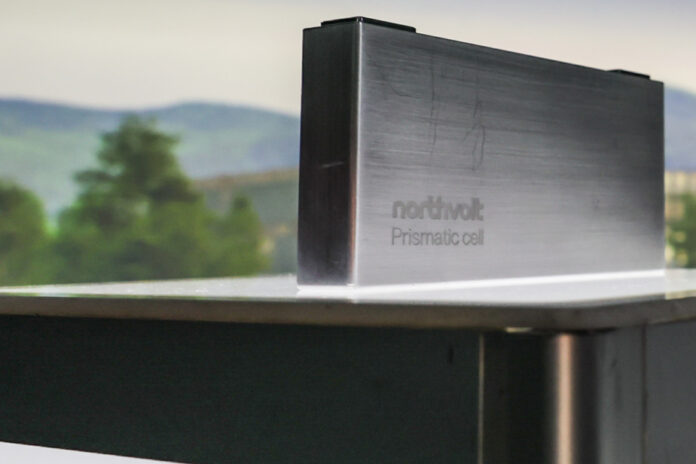The integrated battery cell factory project on the South Shore of Montreal may raise questions on environmental and regulatory levels, but it arouses enthusiasm among job seekers at a time when there is a serious labor shortage. of work.
Tuesday noon, the boss of Northvolt North America, Paolo Cerruti, claimed in a discussion before the Chamber of Commerce of Metropolitan Montreal (CCMM) that he had received 3,000 spontaneous applications since the project was announced.
“We found a very high quality of people in Montreal. The week following the announcement, we had 3,000 spontaneous applications in just one week. It’s great,” Cerruti said of the workforce to power the project, such as engineers and project managers. In impeccable French, the co-founder of Northvolt answered questions from the President and CEO of the CCMM, Michel Leblanc.
As for the construction phase, however, the speaker showed his concern. It must be said that we are witnessing a bottleneck as we approach 2026, where the Ford, GM and Nemaska Lithium factories, in particular, will have to be delivered in order to respect the contracts signed with customers .
“Every time I speak to the big names in construction in Quebec, they are reassuring. It makes me happy, but I still remain very attentive to market dynamics, he said. Residential is slowing down, but the skills are not necessarily the same as those required in factory construction. I am rather reassured, but I am still observing. »
Northvolt confirmed that it would use foreign labor on a temporary basis for the installation and testing phase of equipment, often manufactured overseas. These experts from Europe and Asia will also have the task of training future operators. “These people are not expected to stay in Canada for years. It’s punctual. It’s going to be a few hundred people, not all at the same time, for a few weeks, sometimes a few months,” he said.
Northvolt wants to build a $7 billion factory on a huge plot of land straddling McMasterville and Saint-Basile-le-Grand. He is waiting to obtain permission from the Ministry of the Environment to fill in certain wetlands. Officials refused such a request to the previous owner of the land as recently as last March.
Since its announcement, the project has attracted criticism from environmental groups, who accuse it of escaping the inquisitive gaze of the Office of Public Hearings on the Environment for the work in the initial phase.
Paolo Cerruti admits to having been surprised by the negative reactions and the backlash that followed the announcement of the establishment of the Swedish firm’s battery factory in Montérégie. He imagined the sharp contrast between the reaction in Quebec and that of the Swedish population when the company embarked on a project of this kind in the Scandinavian country.
“In Sweden, we had to close the room in which we held public days where we invited citizens. We had to close the doors for security reasons, not because there were protests, but because people were going on the stage to sing and to support us and to say how happy they were that we were there. »
“We had a slightly different reception here,” he continued, eliciting laughter from his audience. It surprised us, honestly,” but that’s how he says he discovered Quebec, “how people work, how the media work.”
On the issue of wetlands on the site of the former explosives factory, the businessman believes that they do not all have the same value. “There are areas that we ourselves have said we will not touch, because we think there is real environmental value. »
In other cases, however, what he describes is more like fill holes filled with stagnant water for which he shows little love.
However, in all cases, it relies on the expertise of government authorities.
Since 2021, Northvolt has owned the Californian company Cuberg, which markets battery technology for the airline industry. In response to a question from Reuters, Paolo Cerruti indicated that Quebec could host the commercial factory associated with this division in due course.
“We are considering reserving space on the [Montérégie] site if it makes sense to have a first industrial-scale factory here in Quebec. This does not mean that we have made the decision to industrialize Cuberg here, replied the boss. It’s very early. The question will arise in a few years, probably in the second part of this decade. It’s a technology full of promise. At this time, it has little volume and is expensive. It’s very niche at the moment. We imagine that it will become more democratized in the future. »















